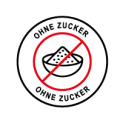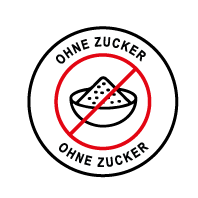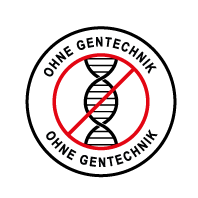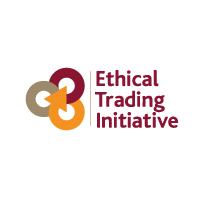1. The employment relationship is freely chosen
1.1 There shall be no forced labor, involuntary servitude or involuntary prison labor.
1.2 Workers are not required to leave a "pledge" or their identification documents with their employer and are free to leave their employer after reasonable notice.
2. Freedom of association and the right to collective bargaining are respected
2.1 Workers shall have the right, without exception, to assemble and form a union of their own choosing and to bargain collectively.
2.2 The employer shall adopt an open attitude towards the activities of trade unions and their organizational activities.
2.3 Employee representatives shall not be discriminated against and shall have the opportunity to perform their representative functions in the workplace.
2.4 Where the right to organize and bargain collectively is restricted by legislation, the employer shall facilitate and not impede the development of equal means for independent and free association and bargaining.
3. Working conditions are safe and hygienic
3.1 A safe and sanitary working environment shall be provided, taking into account the general knowledge of the industry and certain hazards. Reasonable measures shall be taken to prevent accidents and injury to health arising out of, in connection with, or as a result of the work by minimizing, as far as is reasonably practicable, hazards inherent in the work environment.
3.2 Workers shall receive regular and recorded health and safety training. This training shall be repeated for new or rehired workers.
3.3 Access to clean toilet facilities and potable water and, where appropriate, food storage facilities shall be provided.
3.4 Housing, when provided, shall be clean, safe, and meet the basic needs of workers.
3.5 The company complying with the guidelines shall assign responsibility for health and safety to a senior management representative.
4. No child labor is used
4.1 There shall be no use of child labor.
4.2 Companies shall develop or participate in policies and programs that provide for the transfer of a child found performing child labor to quality education and for the child to remain in the same until the end of childhood. "Child" and "child labor" are defined in the Annexes.
4.3 Children and adolescents under the age of 18 shall not be employed during the night or in hazardous conditions.
4.4 These policies and procedures shall be consistent with the provisions of the relevant ILO standards.
5. Minimum wages shall be paid
5.1 Wages and benefits paid for a regular workweek shall be at least equal to national legal requirements or the industry standard, whichever is higher. In any case, wages shall always be sufficient to meet basic needs and provide some discretionary income.
5.2 All workers shall receive written and comprehensible information on working conditions in relation to wages before they start work and on wage details for the reference period concerned each time they are paid.
5.3 Deductions from wages as disciplinary measures shall not be permitted nor shall deductions from wages not permitted by national legislation be made without the express consent of the worker concerned. All disciplinary actions shall be recorded.
6. Working hours are not excessive
6.1 Working hours shall be in accordance with national legislation and the industry standard, whichever provides the greater protection.
6.2 In any case, workers shall not be required to work more than 48 hours per week on a regular basis and shall have at least one day off on average every 7 days. If overtime is worked, it shall not exceed 12 hours per week and shall be compensated with an overtime premium.
7. Discrimination is not practiced
7.1 There is no discrimination in hiring, compensation, admission to training, promotion, termination of employment or retirement on the basis of race, caste, nationality, religion, age, disability, gender, marital status, sexual orientation, union membership or political affiliation.
8. There is a regulated employment relationship
8.1 The work performed shall be carried out as far as possible on the basis of the recognized labor relationship established by national legislation and practice.
8.2 Obligations to workers arising from labor or social security law and regulations regarding a regular employment relationship shall not be avoided through the use of labor-only contracts, subcontracting or home-based work, or through training plans without the intent to teach skills or provide a regular employment relationship, nor shall such obligations be circumvented through the excessive use of temporary employment contracts.
9. Inhumane or brutal treatment is not permitted
9.1 Physical abuse or discipline, threats of physical abuse, sexual or other harassment, and verbal abuse or other forms of intimidation are prohibited.
The provisions of this Code set minimum standards, not maximum standards, and should not be used to prevent companies from improving these standards. Companies implementing this Code are expected to comply with national and other applicable laws and, where the provisions of the legislation and the Base Code address the same issues, to apply the provisions that provide the greater protection.
8.1 The work performed shall be carried out as far as possible on the basis of the recognized labor relationship established by national legislation and practice.
8.2 Obligations to workers arising from labor or social security law and regulations regarding a regular employment relationship shall not be avoided through the use of labor-only contracts, subcontracting or home-based work, or through training plans without the intent to teach skills or provide a regular employment relationship, nor shall such obligations be circumvented through the excessive use of temporary employment contracts.
9. inhumane or brutal treatment is not permitted
9.1 Physical abuse or discipline, threats of physical abuse, sexual or other harassment, and verbal abuse or other forms of intimidation are prohibited.
The provisions of this Code set minimum standards, not maximum standards, and should not be used to prevent companies from improving these standards. Companies implementing this Code are expected to comply with national and other applicable laws and, where the provisions of the legislation and the Base Code address the same issues, to apply the provisions that provide the greater protection.
Implementation ETI Base Code
Responsible for compliance with the ETI Base Code at bosch Tiernahrung GmbH & Co. KG:
Gerd Kastler






































